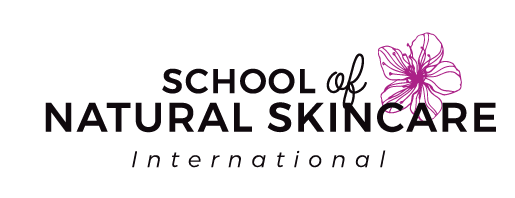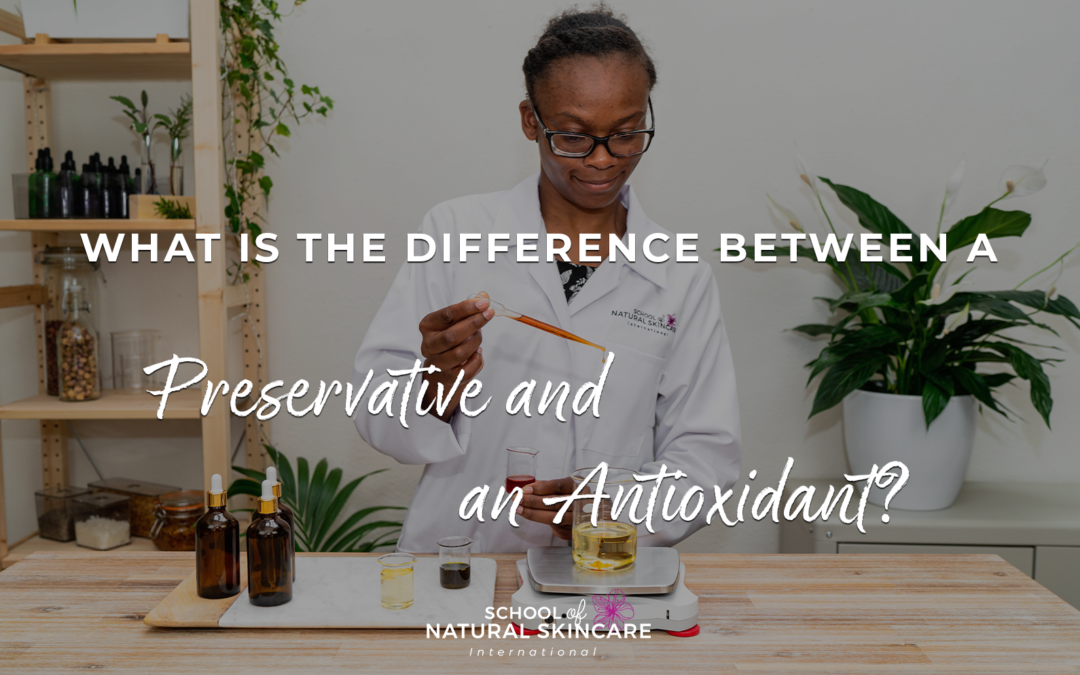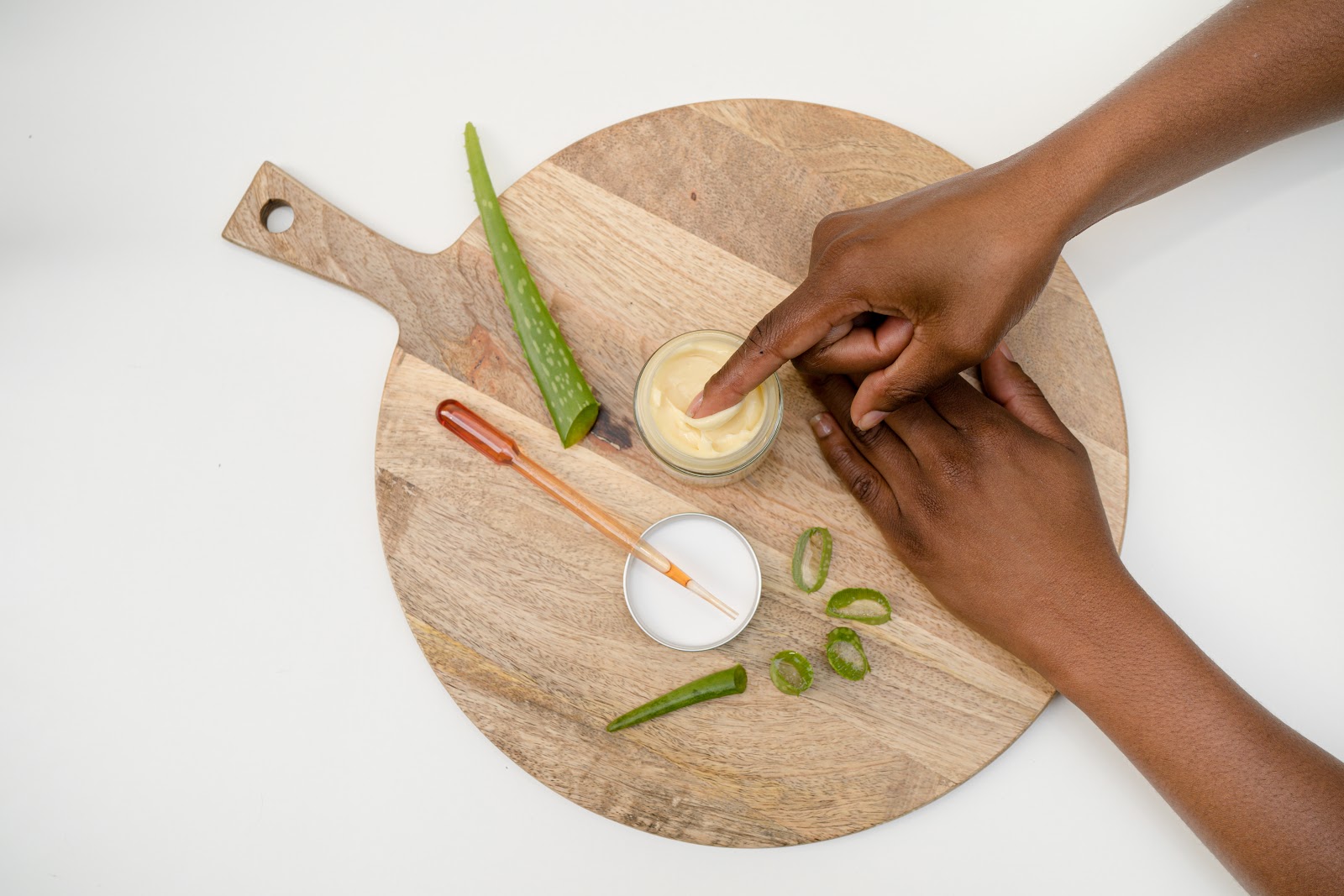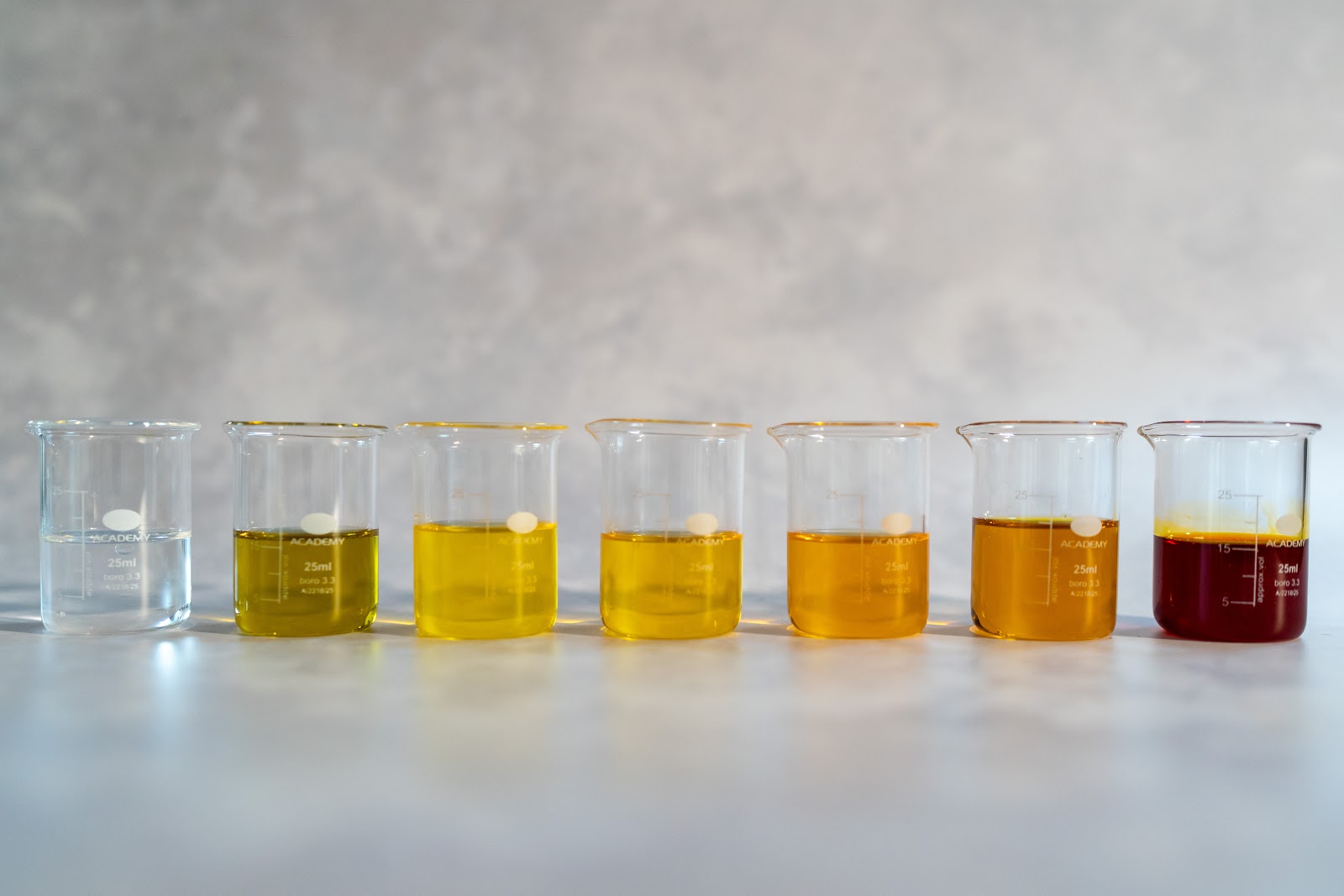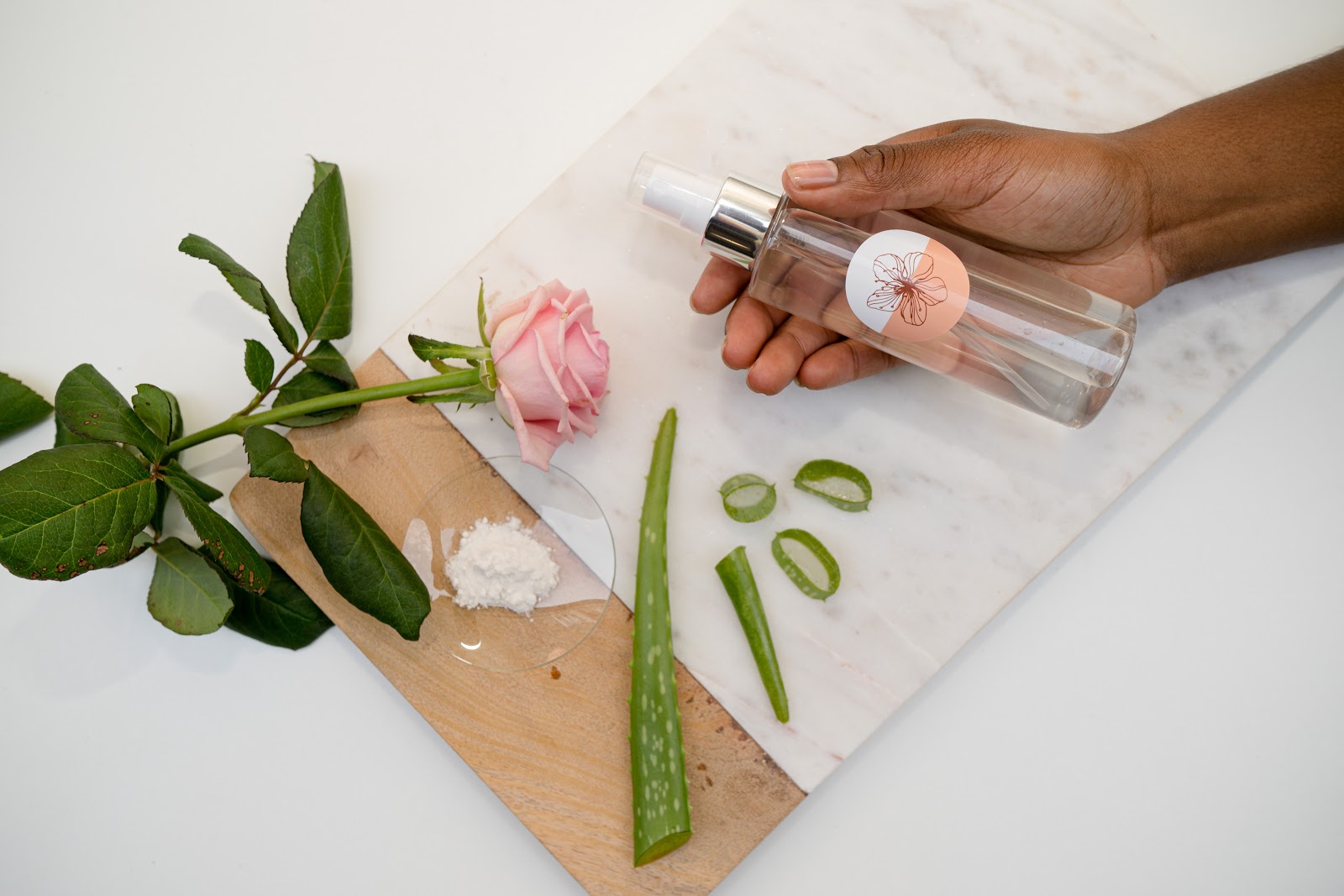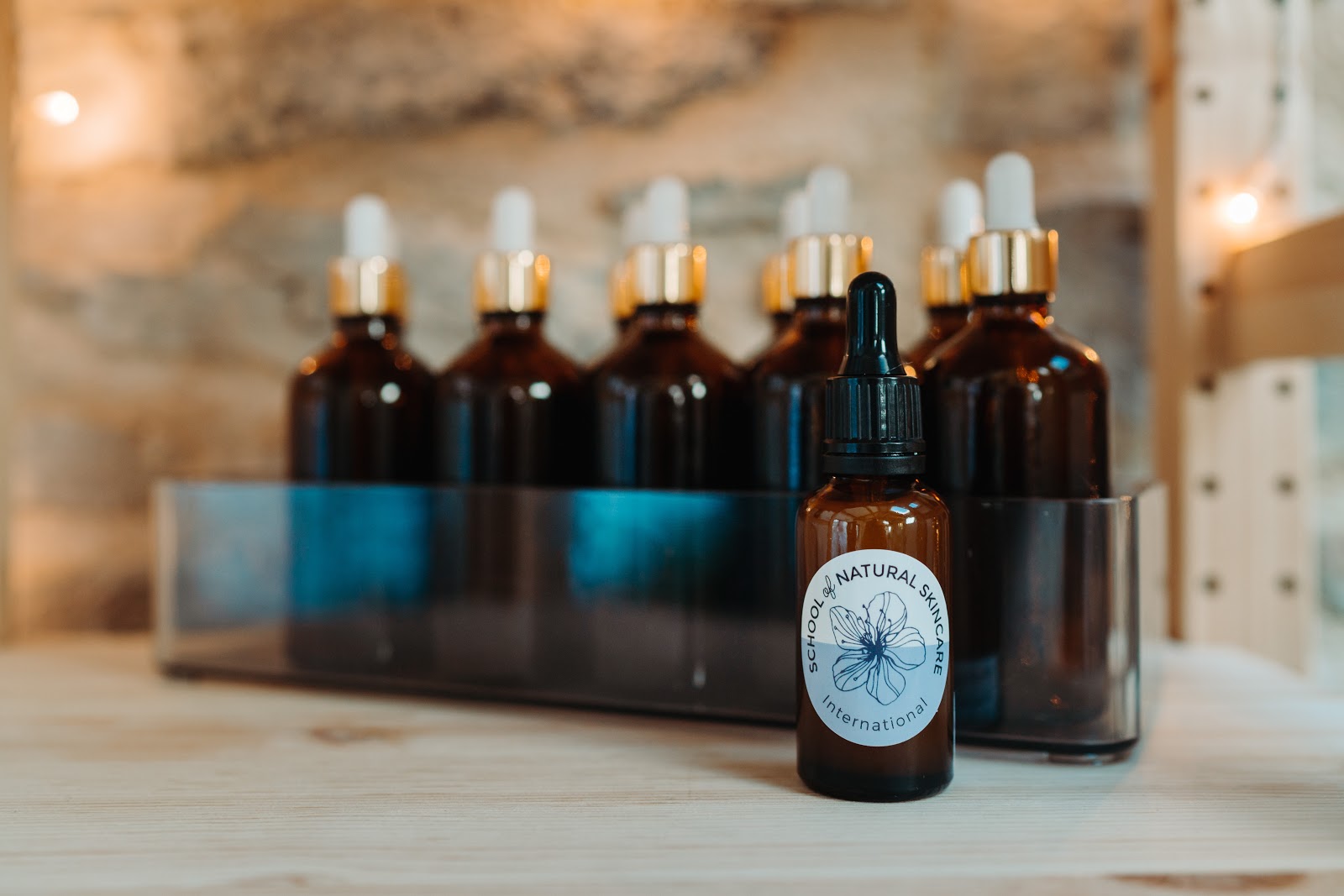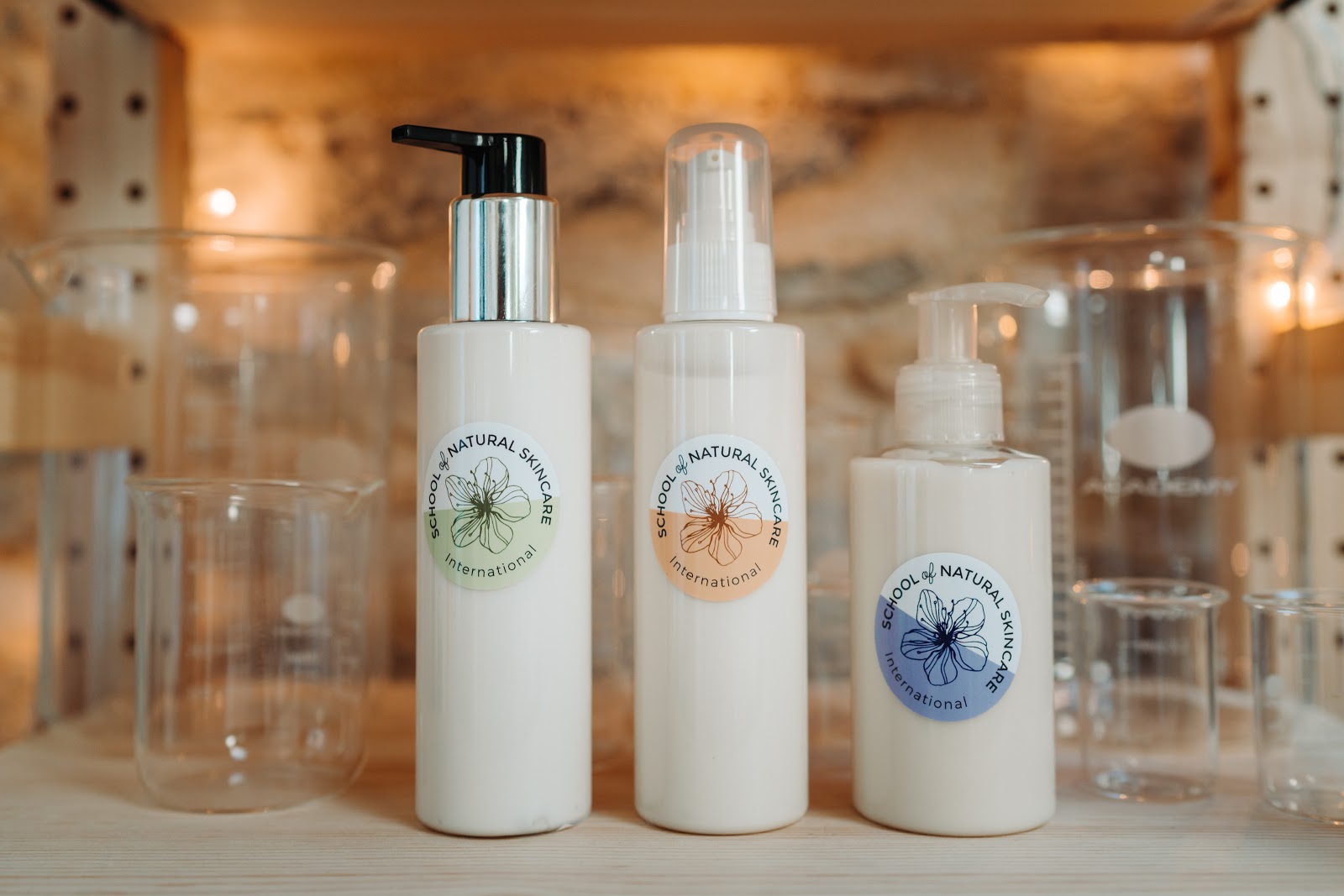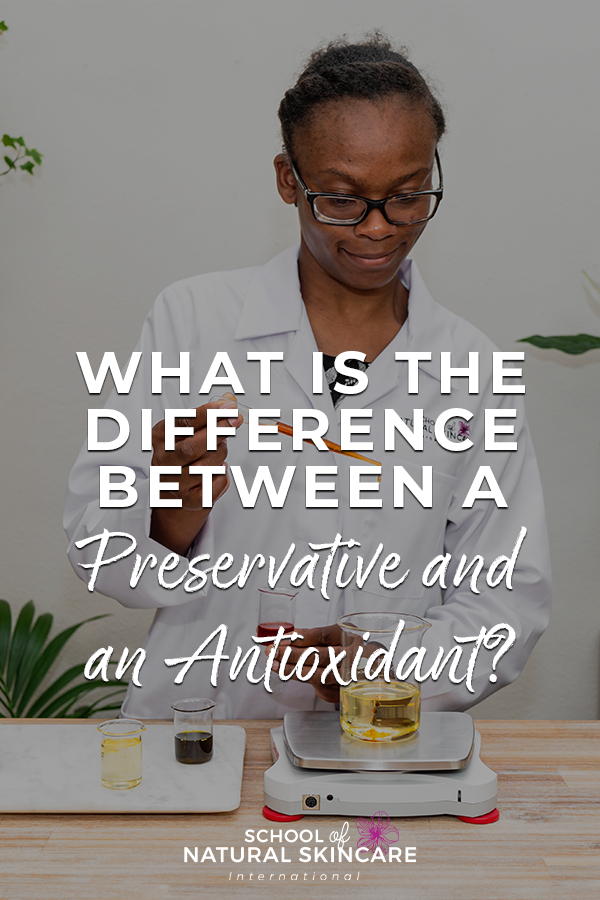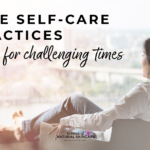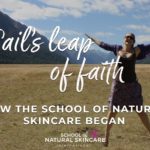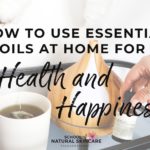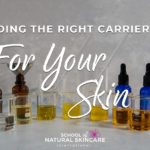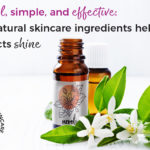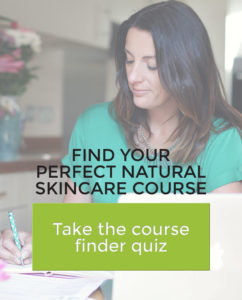It’s quite possible you have heard that preservatives and antioxidants are used to extend the shelf-life of cosmetic products. For this reason, some people mix the two terms up. But in reality, preservatives and antioxidants have very different mechanisms for extending shelf-life.
How are preservatives and antioxidants different and why is it important to not get them mixed up?
Preservatives prevent microorganisms from growing and spoiling cosmetic products. Antioxidants slow down the process of oxidation and thus prevent oils and other components from going rancid.
Both antioxidants and preservatives are used to extend the shelf-life of cosmetic products.
If a product contains water, eg a moisturizer or a toner, it can become contaminated with microorganisms and is subsequently unsafe for use.
For example, when we use a moisturizer, we dip our fingers into the jar but we forget that our fingers contain millions of microorganisms. Whilst many of these are harmless, some are not. So, by doing this simple action we run the risk of introducing microorganisms into the product and contaminating it.
Preservatives prevent the growth of microorganisms and thus make sure the bacteria and fungi introduced into the product can’t replicate and proliferate.
This way they ensure the product remains microbiologically safe, even when used in a non-sterile environment.
Many cosmetic ingredients are prone to oxidative degradation (chemical reactions involving oxygen that degrades the quality of oils). Most notable examples are carrier oils, especially those with a large content of unsaturated fatty acids.
Over time, as they are exposed to oxygen (from the air), sunlight and warm temperatures, they will begin to oxidize. You can often (but not always) recognize heavily oxidized oils by their rancid smell.
Products that have gone rancid can be irritating when applied to the skin.
For this reason, we use antioxidants in our products – they slow down the oxidation process, making sure we are not applying rancid oils to our skin.
However, antioxidants won’t protect the product from microbial contamination. And preservatives will not be at all effective in preventing oxidation. So it is important to know which is which, and when to use each of them.
You can find out more about natural preservatives here.
Why are preservatives and antioxidants important in natural cosmetics?
Products that contain water (eg gels, toners, spritzes, lotions, creams) need to contain a preservative to prevent microbial spoilage.
Products that contain oils (or other ingredients that tend to oxidize quickly), need to contain antioxidants to delay the rancidity, for example lip balms, anhydrous body butters, lotion bars, facial oils, bath oils, lotions and creams.
As you can see, some products, like lotions and creams, have to use both preservatives and antioxidants to remain safe and effective.
Three popular antioxidants that are passed off as preservatives (but they aren’t)
There are three common popular antioxidant ingredients in the DIY world that are passed off as preservatives. They are:
- Vitamin E – the gold standard for antioxidants in natural skincare.
- Rosemary extract – a wonderful natural extract made from rosemary.
- Grapefruit seed extract – while research remains inconclusive on whether or not it has antimicrobial activities, it does function as an antioxidant.
However, despite what you might read or see elsewhere, these will not function as preservatives.
To find out more about antioxidants, read our article here.
Why do preservatives have a bad reputation in DIY cosmetics and what’s the real story?
Many people who make their own natural cosmetics try to make preservative-free cosmetics. Their reasons can be various – from not wanting to use synthetic ingredients to wanting to avoid irritating ingredients.
The truth is that while preservatives may have some negative effects (they are toxic to microorganisms, after all), they are still safer to use than using non-preserved products.
Preservatives intended to be used in cosmetic products are considered to be safe, when used in accordance with usage guidelines and/or official legislation.
It’s also important to understand that human skin cells differ from bacterial and fungal cells, so preservatives will not have the same effects on humans as they do on microorganisms. Some preservatives can be irritants to human skin (especially for sensitive skin), but the majority of preservatives don’t have any negative consequences when applied to the skin.
It is far more risky to use an unpreserved cream than to use preservative-free products that contain water. For this reason, most regulations across the world require cosmetic products to be protected from microbiological spoilage – which in most cases mean they need to be well preserved.
How do you ensure you are making safe natural skincare products?
If you want to make sure your products are safe, stable and effective, you’ll need to make sure you are doing the simple things right.
These are things like:
- Being able to detect a good natural skincare recipe from a bad one.
- Having the knowledge to be able to spot incorrect and inaccurate information.
- Knowing how to write proper cosmetic formulas and how to convert them into natural skincare recipes.
- Developing good practical product-making skills.
- Knowing a broad range of natural and organic cosmetic ingredients from which to choose, including their therapeutic potential, safety data and specific requirements.
- Using the right ingredients, for the right purpose, in the right amounts.
- Putting into practice proper emulsification and preservation systems.
- Developing a good knowledge of the functional ingredients – preservatives, emulsifiers, antioxidants, thickeners and stabilizers.
- Having an understanding of skin anatomy and biology as well as understanding the characteristics of different skin types.
- Using the correct equipment that is used solely for the purpose of making your cosmetic products.
- Following proper good manufacturing practices and the correct lab procedures.
- Seeking instruction from qualified professionals who understand the meaning behind DIY cosmetics but follow industry best practices.
Ultimately, if you are able to do all of these things you’re on the right path to creating safe, stable and effective products, and if you bring your passion, values and beliefs into the mix, that’s when you create something unique!
This is exactly what we teach on all of our courses, but most especially our Diploma in Natural Skincare Formulation.
This is where you’ll learn the professional way to formulate natural skincare products for yourself, whether you want to make them for yourself, or to sell. It is here that you’ll learn and perfect the practice, art and science of natural skincare formulation and this will enable you to become the independent creator of your own masterpieces.
Plus, it’s an online multimedia course where you study from home wherever you are in the world, in your own time, at your own pace. Click here to find out more.
Want to know more about natural emulsifiers and preservatives?
Discover the most natural emulsifiers and preservatives for your skincare products by downloading our free guide!
Loved reading all about the difference between preservatives and antioxidants ? Pin this article to make sure you remember!
